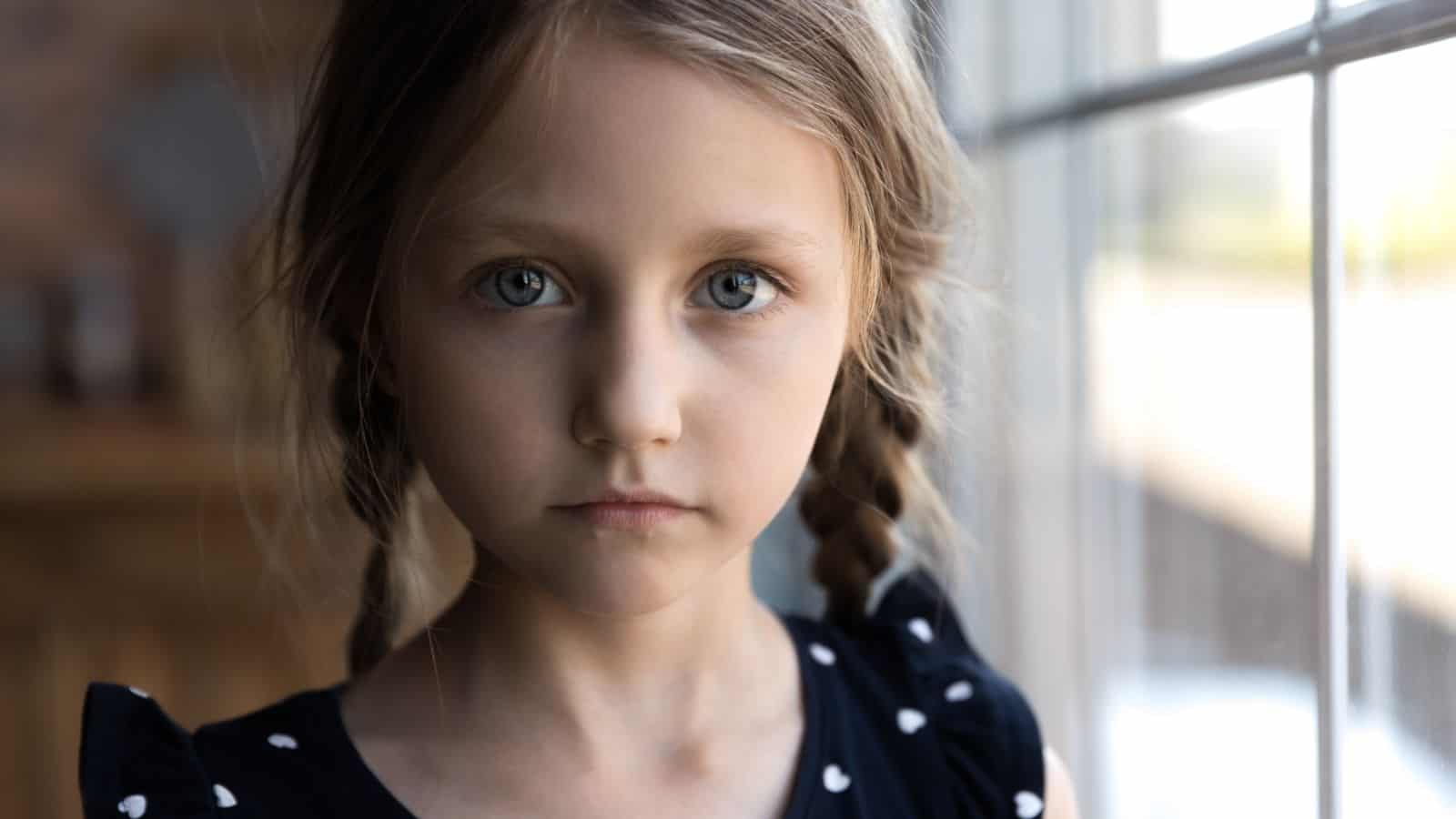The importance of a good education cannot be overstated. Yet, despite being a developed country, children are currently not getting the best education possible. In this article, we look at 18 reasons why this is happening in America.
Over-reliance on Technology for Learning

The Independent reports that 8- to 10-year-olds are spending about six hours on screens per day. Children are increasingly dependent on technology for learning, which might limit their development. Excessive use of devices for educational purposes can also lead to a sedentary lifestyle among children.
Insufficient Emphasis on Critical Thinking

Critical thinking is a crucial skill for navigating the complexities of the modern world, yet it’s often overlooked in today’s education. Many educational systems prioritize memorization over critical analysis and creative thinking. Students are often not given enough opportunities to apply knowledge in real-world scenarios.
Inequitable Access to Education

There’s a significant gap in the quality of education between different schools, often influenced by funding and resources. Education should be a right, not a privilege, but for many children, accessing quality education remains a significant challenge. Children from lower socio-economic backgrounds often have less access to quality education.
Underfunded Education Systems

When education systems are underfunded, the quality of teaching and learning resources significantly drops. Many schools lack the necessary funds to provide teachers with adequate teaching materials and training. The Century Foundation says that “the United States is underfunding its K-12 public schools by nearly $150 billion annually, robbing more than 30 million school children of the resources they need to succeed in the classroom.”
Overemphasis on Standardized Testing

Standardized tests often fail to capture a student’s full range of abilities and potential. However, schools prioritize test preparation over a more rounded education, limiting students’ learning experiences. Additionally, the pressure to perform well on standardized tests can cause unnecessary stress for students.
Lack of Practical Life Skills Education

Many schools do not teach essential life skills such as managing finances or understanding taxes. Essential skills like emotional intelligence and coping strategies are crucial for success in life but are often overlooked in curricula. This has led to an increase in the number of students who graduate without the practical skills needed for today’s job market.
Deteriorating Teacher Quality

Teachers often start their careers unprepared and don’t receive enough support afterward. This, combined with high stress, low pay, and not enough reasons to strive for excellence, leads to burnout and teachers leaving their jobs. Improving education means making sure teachers are well-trained, supported, and motivated to do their best work.
Exclusion of Parents from the Learning Process

Schools often don’t give parents enough chances to get involved in their children’s education. Barriers like language differences and poor communication can stop parents from helping at home. Plus, schools and parents sometimes disagree on what education should focus on.
Declining Physical Education and Arts Programs

When budgets are tight, schools often cut classes like gym and art first, even though these are important for kids’ development. There’s also a shortage of teachers trained to teach these subjects. Exercise and creativity are key for growing kids, but they’re becoming less common in schools, which is affecting children’s overall development.
The Rise of Social Media Distractions

Social media has transformed the way children interact with the world, often at the expense of their education. It makes it hard for kids to concentrate on schoolwork because it shortens their attention spans. It can also lead to stress and bullying online, which makes learning even harder.
Inadequate Support for Special Needs Education

Every child has the right to an education that meets their individual needs. However, many teachers lack training to help students with disabilities, making it hard for these students to get the support they need. Also, students with special needs might face unfair treatment or feel left out, which can hurt their learning and how they feel about themselves.
Educational Disruption Due to Global Events

Events like the COVID-19 pandemic have led to significant learning disruptions worldwide. Schools and families were unprepared for the sudden shift to online education. McKinsey reports multiple negative effects of COVID-19, including worse mental health and lower reading rates.
Limited Exposure to Diverse Perspectives

Education often misses out on showing the wide range of cultures and viewpoints in the world. Textbooks and other materials usually don’t include enough diversity, which means students don’t learn about different cultures. Also, unfair treatment and bias in schools can stop students from getting an education that includes everyone.
The Gap in Digital Literacy Education

Not all students have the same access to digital tools and the internet. Even for those who do, schools often do not prioritize teaching essential digital literacy skills. Without proper education on cybersecurity, students are vulnerable to online risks and threats such as bullying and predators.
Neglect of Environmental Education

Students rarely get to learn about the environment by doing things outside of the classroom. Since sustainability is only picking up interest, teachers might not even know the best ways to teach about the environment and how to take care of it.
Pressure to Pursue Traditional Academic Paths

Not every child is meant for a traditional academic path, and that’s okay. Vocational and technical education paths are often undervalued, even if they are just as good an option as any other. There’s a strong cultural push for university education, but we’re seeing that it is not the best fit for every student.
Erosion of Teacher Autonomy

Teachers know their students best, but often they’re not given the freedom to teach in the way they see most effective. The strong emphasis on standardized testing restricts teachers’ ability to teach creatively and innovatively. Excessive administrative tasks also detract from teachers’ primary role of educating students.
Lack of Global Awareness in the Curriculum

Curricula often focus too narrowly on local or national history and issues, neglecting global perspectives. A survey conducted by the Council on Foreign Relations and the National Geographic Society revealed that American adults have gaps in their knowledge about geography and world affairs. Only 6% of participants managed to get at least 80 percent of the questions correct.
Read More: 20 Things We Did When We Were Young That We Regret Now

It’s easy to say hindsight is 20/20, but what advice would you really give your younger self? Here are 20 things that most people did when they were young that they regret today.
20 Things We Did When We Were Young That We Regret Now
17 Things That Used to Be Highly Respected But Isn’t Anymore

Many things in the world used to be well-respected before turning into complete jokes for various reasons. An internet survey recently asked people, “What is something that was once highly respected but is now a complete joke?” Here are the top 20 answers:
17 Things That Used to Be Highly Respected But Isn’t Anymore
17 Fairy Tales That Are Now Considered Racist

While fairy tales weave magical narratives that span generations, many emerge from historical and cultural contexts tinged with biases. Hiding in many of these tales, racial undertones can be found. Let’s look at 17 fairy tales that have deeper implications.
17 Fairy Tales That Are Now Considered Racist
17 Things Society Can No Longer Do Because Gen Z Said So

Gen Z, our digital-native, trendsetting generation, is making waves in the cultural sea, steering the ship of societal norms in fresh and unexpected directions. As they charter new territories, there are certain practices they’d rather we say goodbye to. Curious? Let’s take a look at 17 things the rest of us can no longer do because Gen Z said so.
17 Things Society Can No Longer Do Because Gen Z Said So
18 Common Traits Found in Adults Who Had Unhappy Childhoods

Being a parent is a hard job, so even those who are truly trying their best will often miss the mark on creating the best environment for their children. Unfortunately, this means that many of us grow up with far-from-perfect childhoods that affect us into adulthood. Here are 18 common traits found in adults who had unhappy childhoods.

